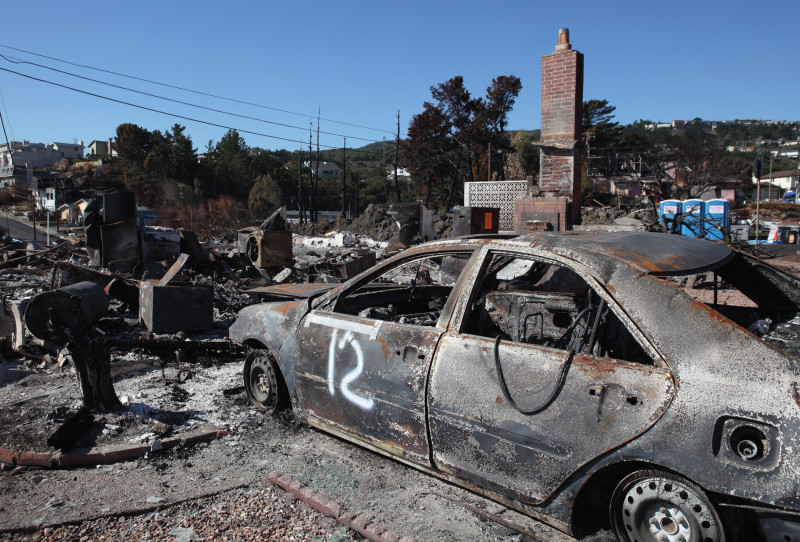• $850 million for gas and safety improvements to be paid by shareholders
• $400 million to reimburse ratepayers in a one-time bill credit
• $300 million to the state's general fund as a fine
• And an additional $50 million toward previously identified safety measures.
PG&E argues that $1.3 billion of the fine -- subtracting $300 million for the fine going to the state's general fund -- should be used to establish a baseline for deductions, according to current law. The California Franchise Tax Board estimates that the utility would be able to deduct about $115 million in state taxes -- unless a bill proposed by two Peninsula Democrats is passed.
"While we are not appealing the CPUC decision, we continue to believe that costs outlined in the decision are deductible under tax laws," PG&E wrote in a statement.
State Sen. Jerry Hill and Assemblyman Kevin Mullin, both Democrats whose districts include San Bruno, introduced SB681, which would prohibit PG&E from deducting the fine. The bill passed a state Senate committee on Wednesday morning, and heads to the appropriations committee. It will eventually need two-thirds of the vote in the Legislature.
In April, CPUC President Michael Picker wrote to the IRS and state tax boards, stating that the full fine was meant to be punitive.
"We also want to express our hope that any attempt by PG&E to deduct any of these costs will be disallowed on the basis of their punitive nature," Picker wrote. "Every dollar the commission ordered that shareholders pay in this final decision was intended to penalize PG&E for its egregious actions and legal violations."
The distinction is important because punitive fines and penalties are nondeductible, but remedial fines can be deductible.
"Because it's not defined and written as a penalty, they get to deduct that money, which means they can lower their total penalty," Hill said. "That's not fair."
Hill noted that if the entire fine went to the general fund, PG&E would be unable to deduct any of it. But, he said, the CPUC was correct in forcing PG&E to pay for the safety work it should have done. And, he noted, this way PG&E customers receive $400 million in credits, and not people outside PG&E's service area.
"The ratepayers should be the ones who benefit from this penalty," Hill said. "We were living within a vulnerable area. We had a system that was not safe. We had a system that was overcharged. They spent over $400 million of money that was set aside, ratepayer money, set aside for maintenance. They diverted those funds to bonuses and profits and incentives for executives."
But there is precedent.
BP sought a $9.9 billion reduction in taxes after the 2010 Gulf of Mexico oil spill. And the company could deduct more from an $18.7 billion settlement signed two weeks ago.
The federal government's $1.1 billion settlement with Exxon over the Exxon Valdez oil spill in Alaska cost the company only $524 million after taxes.

